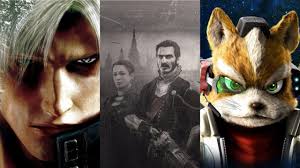In the ever-evolving landscape of gaming, nostalgia often tugs at the hearts of players, reminding them of the classics that shaped their gaming experiences. While some titles stand the test of time, others could benefit from a modern remake, breathing new life into beloved franchises and introducing them to a new generation of gamers. Here’s a curated list of 10 games that deserve a remake:
Chrono Trigger (1995)
Widely regarded as one of the greatest RPGs of all time, “Chrono Trigger” mesmerized players with its engaging storyline, memorable characters, and innovative gameplay mechanics. A remake could revitalize its charming world with stunning visuals, refined combat systems, and perhaps even additional story content.
Metal Gear Solid (1998)
Hideo Kojima’s masterpiece, “Metal Gear Solid,” redefined the stealth genre with its cinematic storytelling and intricate gameplay. A remake could leverage modern technology to enhance its visuals, update controls for smoother gameplay, and introduce new features while staying true to the original’s essence.
Final Fantasy VI (1994)
Often hailed as the pinnacle of the Final Fantasy series, “Final Fantasy VI” delivered a compelling narrative, diverse cast of characters, and memorable soundtrack. A remake could breathe new life into its world of magic and steampunk, offering updated graphics, reimagined cutscenes, and refined gameplay mechanics.
Legacy of Kain: Soul Reaver (1999)
This action-adventure classic captivated players with its dark atmosphere, intricate puzzles, and gripping narrative. A remake could leverage modern technology to realize its gothic world in stunning detail, while refining its gameplay for a contemporary audience.
Silent Hill 2 (2001)
Regarded as one of the greatest horror games of all time, “Silent Hill 2” immersed players in a psychological nightmare filled with suspense and dread. A remake could harness the power of current-gen hardware to deliver enhanced graphics, revamped controls, and perhaps even new story elements to terrify players once again.
System Shock 2 (1999)
A pioneer of the survival horror genre, “System Shock 2” combined elements of first-person shooting, role-playing, and psychological horror to create a uniquely immersive experience. A remake could update its graphics, improve its user interface, and refine its gameplay while preserving the tension and atmosphere that made the original so memorable.
Star Wars: Knights of the Old Republic (2003)
Set in the expansive Star Wars universe, “Knights of the Old Republic” allowed players to embark on an epic journey filled with memorable characters, moral choices, and lightsaber duels. A remake could modernize its visuals, streamline its gameplay mechanics, and introduce new storylines to captivate both longtime fans and newcomers alike.
Castlevania: Symphony of the Night (1997)
Revered as one of the finest entries in the Castlevania series, “Symphony of the Night” blended action, exploration, and RPG elements to create a timeless classic. A remake could enhance its visuals with high-definition graphics, refine its controls for smoother gameplay, and perhaps even expand upon its sprawling castle with new areas to discover.
The Legend of Zelda: Majora’s Mask (2000)
Building upon the success of its predecessor, “Majora’s Mask” challenged players to save the world from destruction within a three-day time loop, offering a unique twist on the traditional Zelda formula. A remake could modernize its visuals, improve its user interface, and introduce quality-of-life improvements while preserving the game’s sense of urgency and atmosphere.
Resident Evil 2 (1998)
A groundbreaking entry in the survival horror genre, “Resident Evil 2” terrified players with its haunting atmosphere, tense gameplay, and relentless zombies. A remake could overhaul its visuals with photorealistic graphics, reimagine its puzzles and encounters, and introduce new content to surprise both veterans and newcomers alike.
Suikoden II (1998)
This classic JRPG is beloved for its expansive world, deep storytelling, and memorable characters. A remake could bring its rich narrative and strategic gameplay to a new generation of players, with updated graphics, refined mechanics, and perhaps even additional content to further explore the game’s lore.
Star Fox 64 (1997)
A beloved classic in the Nintendo 64 library, “Star Fox 64” combined fast-paced aerial combat with memorable characters and thrilling missions. A remake could utilize modern graphics technology to enhance its visuals, introduce new gameplay features, and perhaps even expand upon its multiplayer modes for online play.
Baldur’s Gate II: Shadows of Amn (2000)
This iconic RPG set in the Dungeons & Dragons universe offered deep storytelling, complex characters, and strategic combat. A remake could modernize its visuals, improve its slot online user interface, and introduce new features while preserving the depth and complexity that made the original a classic.
Metroid Prime (2002)
Combining exploration, puzzle-solving, and first-person shooting, “Metroid Prime” set a new standard for the Metroid series. A remake could update its visuals with stunning high-definition graphics, refine its controls for modern platforms, and perhaps even introduce new areas and gameplay mechanics to expand upon the original experience.
Command & Conquer: Red Alert 2 (2000)
This real-time strategy game captivated players with its fast-paced gameplay, diverse factions, and memorable units. A remake could enhance its graphics with modern visuals, improve its multiplayer functionality for online play, and perhaps even introduce new campaigns or missions to reignite interest in this classic RTS franchise.
Conlusion
In conclusion, these 15 classic games hold a special place in the hearts of gamers around the world, and a remake could provide an opportunity to experience them in a whole new light. Whether it’s revitalizing iconic franchises or introducing timeless classics to a new generation, the potential for these remakes to leave a lasting impression is boundless.

